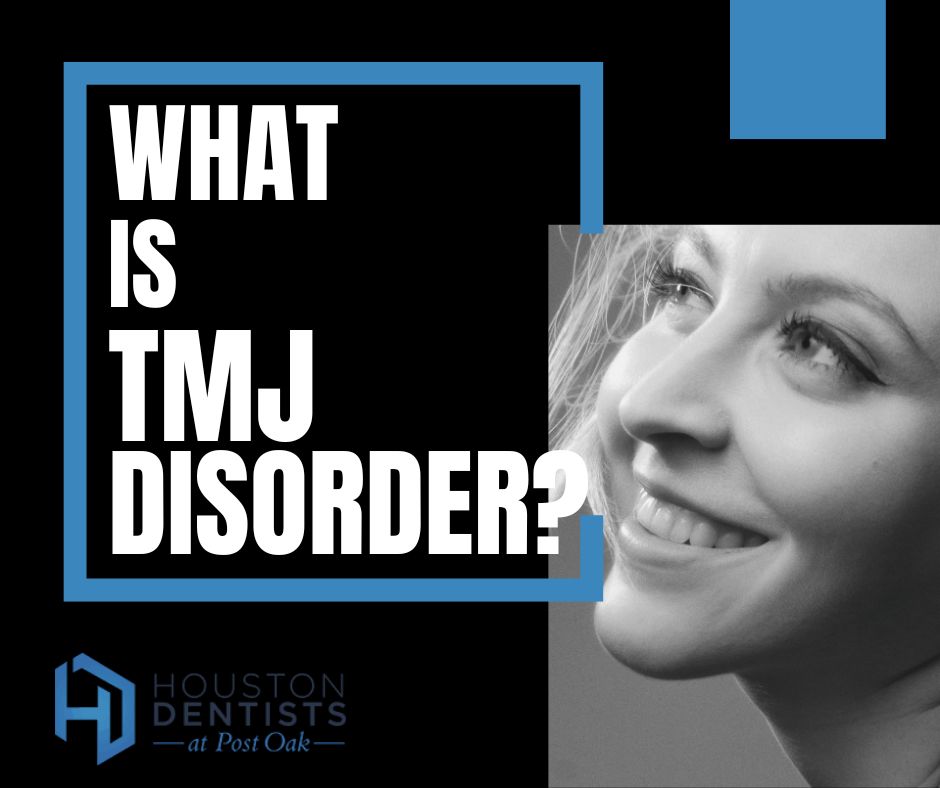A new year is the perfect time to focus on what truly matters—your health, comfort, and confidence. If sharp twinges in your teeth are stopping you from enjoying…

Many people are surprised to find out that the painful symptoms they’re experiencing are related to temporomandibular joint disorders, or TMD. Millions of people suffer from TMJ disorders, but they often go undiagnosed because of the wide range of symptoms. There are also many varying reasons for the onset of TMJ-related issues. Most TMJ problems are painful and disruptive to everyday life. They can also lead to a range of long-term health issues.
TMJ is short for “temporomandibular joint.” These are the connecting points (one on each side) between the jaw and the skull. While small in size, these joints have a big job to do. The joints and the muscles around them are responsible for the movement involved in chewing and talking. You can feel them work by placing your fingers in front of your ears as you open your mouth.
If these joints get misaligned, the whole jaw has stability problems. Extra pressure will go to the wrong places, causing the commonly experienced pain associated with temporomandibular joint disorders (TMD).
There are three main classes of TMD cases, according to the National Institute of Dental and Craniofacial Research:
- TMJ-related headaches
- Disorders of the joints, including disc disorders
- Disorders of the muscles surrounding the temporomandibular joints
Patients often experience persistent headaches on one or both sides of the forehead. It can also present as a domino effect of pain, trickling down to the neck and shoulders. This is why TMD can be tricky to diagnose, since the painful areas may be far from the joint that’s causing the problem.
If you have a TMJ disorder, you may also experience jaw pain, difficulty chewing, clicking or popping sounds, locking or seizing, restricted jaw movement, earaches, or pain in the face, temples and behind the eyes.
What Causes TMJs to Get Out of Whack?
The most common causes of TMJ pain are tooth grinding (often stress related), bone loss or jaw injuries. Genetic issues, environmental factors and prior orthodontic work can also be factors in developing TMJ disorders.
How Do I Know if I Have a TMJ Disorder?
If you think you are experiencing a TMJ disorder, the first step toward permanent relief is a TMJ exam at Houston Dentists at Post Oak. Our TMJ exams include a medical and dental history review as well as symptom analysis.
Digital images of the head, neck and teeth are taken. We then do a computerized bite test to measure the connection between the bite and facial muscles. All this data together helps us determine the best solution for relieving TMJ disorder symptoms.
Treatment for TMD
Many patients feel like they will have to learn to live with their pain. We want to change that by treating the underlying cause instead of only treating the symptoms. Our goal at Houston Dentists at Post Oak is do more than put a quick bandage over the issue.
Our founding dentist, Dr. Pigneri, focuses on the proper alignment of the jaw. He uses his neuromuscular dentistry background to permanently treat pain and discomfort caused by TMJ disorders. We aim to provide lifelong solutions that will correct our patients’ bites while giving them confidence in their smiles at the same time.
Healing from TMJ disorders can also be an opportunity to address aesthetic improvements our patients would like to see in their teeth. We want each person who walks out of our office to feel pain-free and confident in their smile.
Each case is different, but we’re often able to use a non-surgical method of gradually aligning the bite to its proper position. This is accomplished by patients wearing a customized device that gets adjusted over time. It’s comfortable to wear and won’t cause any additional pain on your way to healing your TMJ disorder. In severe cases, we’re able to provide full mouth rehabilitation.
If you think your bite may have a TMJ problem, don’t wait to let our experienced team at Houston Dentists at Post Oak help you feel relief. Proper alignment of the bite promotes proper breathing and chewing, making it a crucial component of overall health.
If you’re ready to live your life without TMJ pain, call Houston Dentists at Post Oak at (713) 955-9764 today to schedule an exam. You can also take our TMJ Quiz to see if the symptoms you’re experiencing may be related to a TMJ disorder.






